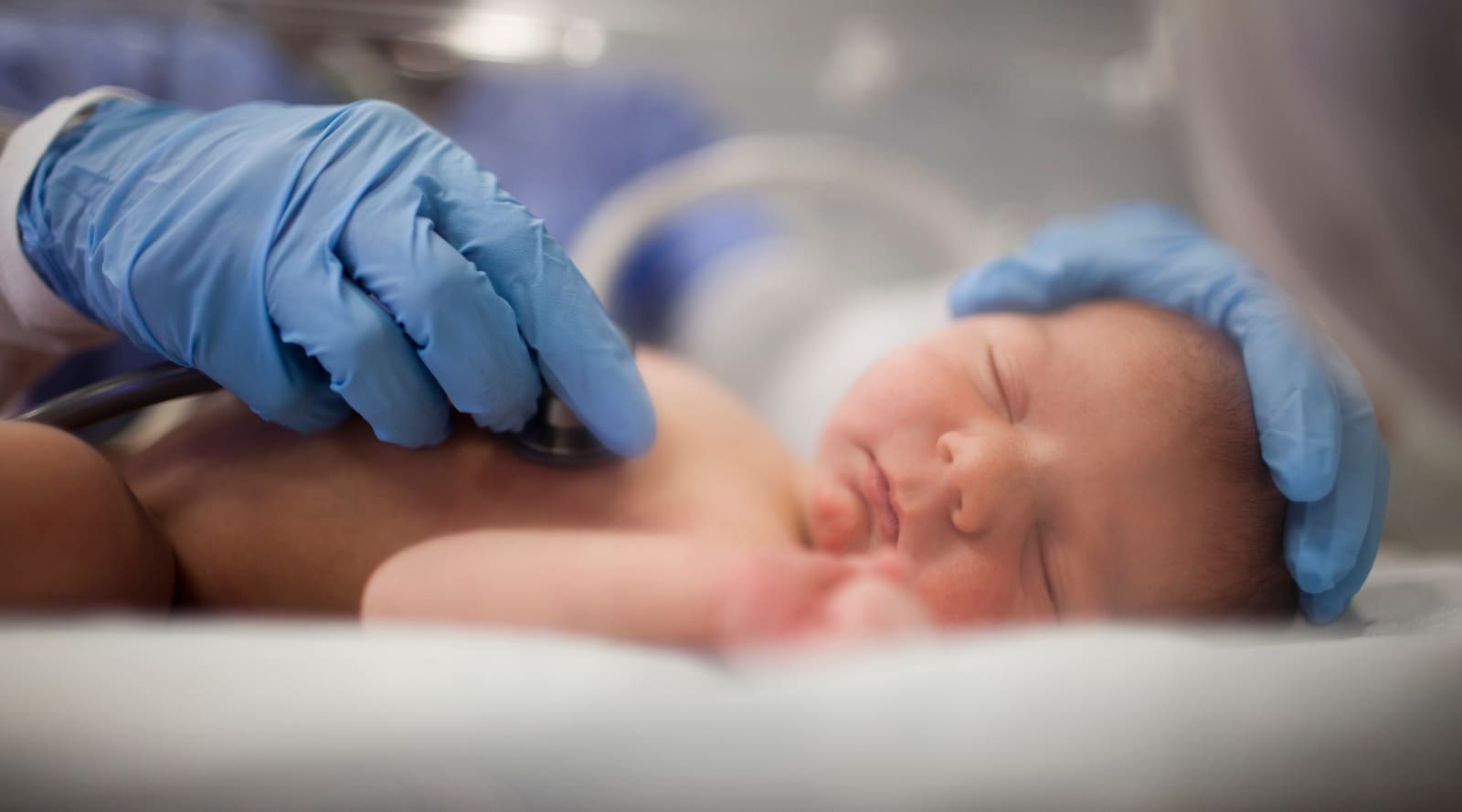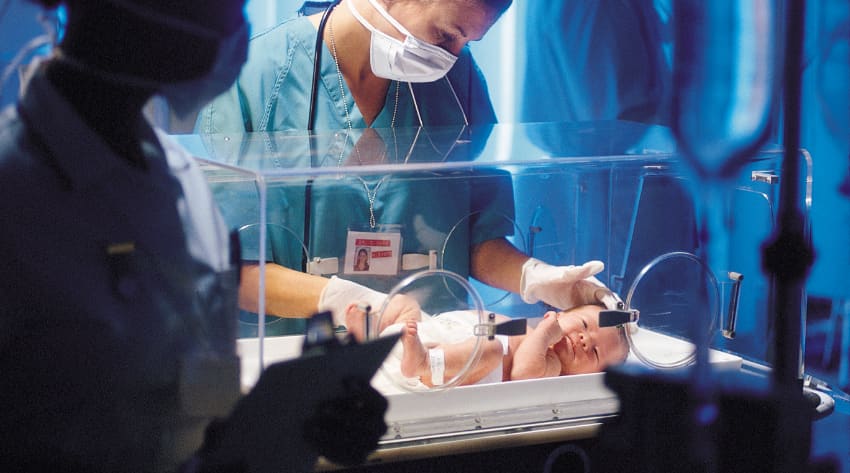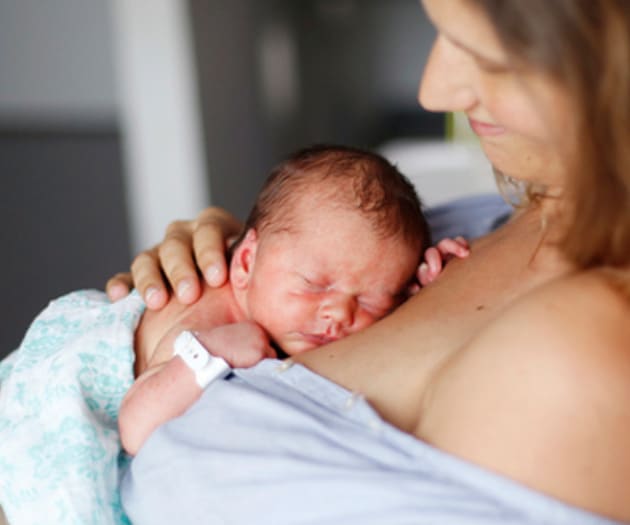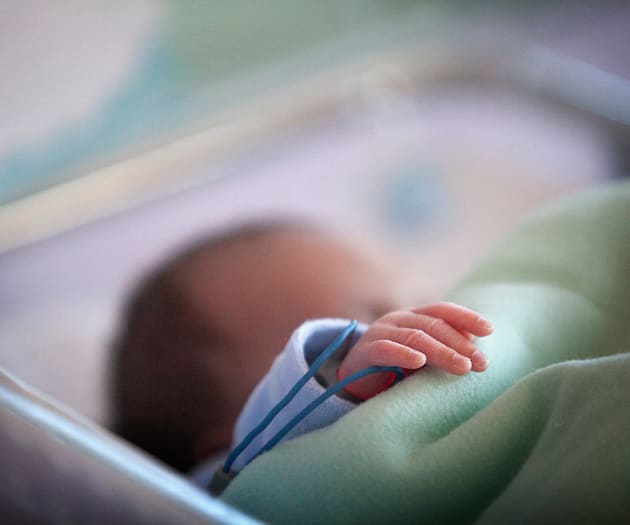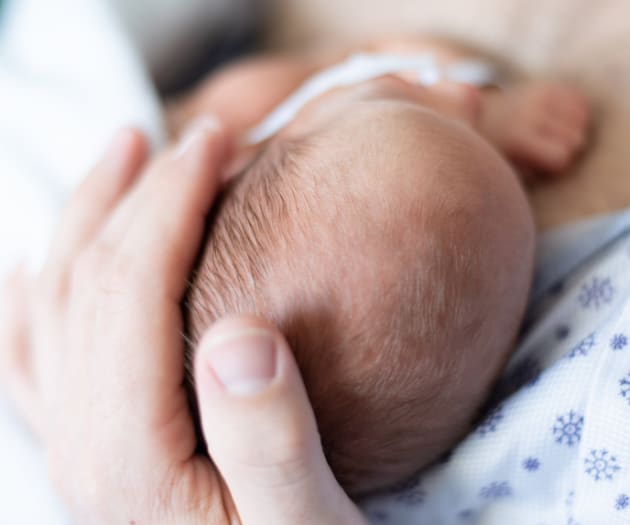Introduction
Giving birth to your baby is one of the most exciting times. However, coming to terms with having a premature baby (known as a preemie) and finding out you may need to spend some time in the neonatal unit can be a difficult experience. In this article, we have tried to break down the most commonly asked questions about what happens after having a premature baby.
What will happen after my premature baby is born?
As soon as your baby is born, your healthcare team will take the necessary steps to help stabilise your baby.1 Premature babies find it difficult to maintain their temperature and get cold very quickly. Nurses will quickly place hats and blankets on your baby and often a heated mattress is used to help keep them warm.2
Your healthcare team will assess your baby's breathing immediately after birth.1 Some babies may need suction to remove a build-up of mucus from their airway. Your healthcare team may use oxygen to support breathing, either with a face mask or a breathing tube inserted into their lungs.3 Your baby‘s heart rate will be closely monitored. If it is low (less than 100 beats a minute), this may be a sign that they need help with their breathing.3 If possible, your healthcare team will delay cord clamping until at least one minute after the birth. During this time, blood, oxygen and nutrients will continue to pass through the umbilical cord to your baby.
Your healthcare team will communicate regularly with you about your baby's condition and if/when your baby needs to be transferred for specialist care.1
What is neonatal care?
Specialist neonatal care provides the necessary care from when your baby is born, right the way through to the daily care your premature baby needs until they are well enough to go home.4 Neonatal units can seem scary places at first. Seeing your premature baby attached to machines and tubes can be difficult. It is important that you seek support through friends, family and healthcare professionals who are there every step of the way with you and your baby.
What are the different levels of neonatal care?
Neonatal units are organised into three levels of care which include:5
Neonatal intensive care (NICU)
These centres are for the most premature babies. Most babies will be in closed incubators and may need help to breathe. Nasogastric tubes (NGTs) are used for feeding and other monitors will be attached to help monitor the baby's heart rate and blood pressure.
High dependency unit (HDU)
These units are used for less sick premature babies. Babies will be in incubators or open cots. Babies tend to spend some time in HDU when transitioning from NICU. On HDU, babies are still closely monitored and can be supported with oxygen and fed via an NGT.
Special care baby unit (SCBU)
These units are for premature babies who do not need intensive care. Most babies will be in open cots. Babies are still closely monitored and can be given oxygen or fed via NGT. This is likely to be the last step-down before being discharged home.
What is the Apgar score?
Apgar scores are used to help identify if your baby requires help with their breathing immediately after birth.6
The Apgar score is calculated by the following:6
-
Appearance (skin colour). A bluish colour on palms of hands, fingertips, or feet because your baby is not getting enough oxygen-rich blood (this is common at birth)
-
Pulse (heart rate)
-
Grimace response. This refers to your baby’s reflex – do they cry or move away in response to stimulation
-
Activity (muscle tone)
-
Respiration (breathing)
Your baby will score 0, 1 or 2 for each of these. The scores are then added together to give an Apgar score between 0 and 10. A score of 6 or less may mean that your baby needs help with their breathing.6
Try not to panic if your baby receives a low Apgar score. Remember that it is a way of making sure your baby receives the specialist support they need.
How can I care for my baby in the neonatal unit?
Parenting in the neonatal unit can leave you feeling overwhelmed, anxious and possibly even guilty at feeling unable to care for your baby. Despite the intimidating environment, you are encouraged to start bonding with your baby.
If your baby is in an incubator and unable to be held, comfort holding (known as still touch) can be a powerful bonding technique in those early days. It also has benefits for your baby including:7
-
Providing comfort during procedures
-
Helping your baby to settle
-
Help soothe your baby to sleep
-
Encourage your baby to be awake and responsive
A common practice in neonatal care is ’kangaroo nursing’. It involves holding your baby against your chest for continuous skin-to-skin contact (in the same way kangaroos hold their babies in their pouch).8 Your healthcare team can continue to provide care whilst your baby is held close to your chest. Skin-to-skin contact with your premature baby is a lovely way for you both to bond, it is also good for your partner to bond with baby as well. It also benefits your baby’s health and can even help breastfeeding to start if you’re able to or want to do so.8
Speak to your healthcare team to find out when you can start kangaroo nursing. You can even continue with kangaroo nursing after you go home from hospital.
When will I be able to take my premature baby home?
Throughout your stay on the neonatal unit, a big question will be when can you take your premature baby home.
The following checklist is used in neonatal care to decide if your baby is well enough to go home:9
-
being able to control their temperature
-
feeding well (orally or via an NGT) and gaining weight
-
can breathe on their own or with the help of oxygen
-
no longer needs nursing care in hospital
Your healthcare team will keep you updated and discuss your baby’s specific needs with you to help you feel confident in caring for your baby before going home.
How do I work out my baby’s corrected age?
Your premature baby is very special as it has two birthdays’, just like the Queen:10
-
The actual day your baby was born (uncorrected age).
-
The due date; known as the date your baby was meant to have been born (corrected age).
-
When your health visitor or GP assess’ you baby’s development it is important to take their prematurity into account.10 Often you will hear the term ‘corrected age’. This refers to the age your baby would be today if they had been born on their due date. This is the age healthcare professionals use when plotting your baby's growth in their red book. Remembering your baby’s due date is helpful when working out the corrected age. The corrected age is used to plot growth and development until your baby is around two years of age.10
It’s important to keep in mind that all babies grow at different rates whether they are premature or not. If you think your baby is not reaching the growth and development milestones or you have any concerns it is worth discussing these with the health visitor or practice nurse.
What support is available for parents of premature babies at home?
When you are finally able to take your premature baby home, support won‘t be far away. We have rounded up a list of people who are available for advice and support:
-
Your healthcare team may refer you to a community neonatal nurse.
-
You will have a local health visitor who may arrange to visit you at home or a local clinic.
-
You can speak with your GP or practice nurse.
-
Bliss is a charity providing practical and emotional support to families of premature babies via email and online video conversations.
Next steps
Seeing your premature baby being cared for on a neonatal unit can be difficult to watch. It is important to look after yourself so that you can be there for your baby. Try to eat well and do not feel guilty for taking some time away from the unit to rest and recover. Friends, family and healthcare professionals will be on hand to help so you can focus on bonding with your baby. If you or your partner are feeling overwhelmed, or showing signs of postnatal depression, it is important to speak to your healthcare professional as there is plenty of support available.



